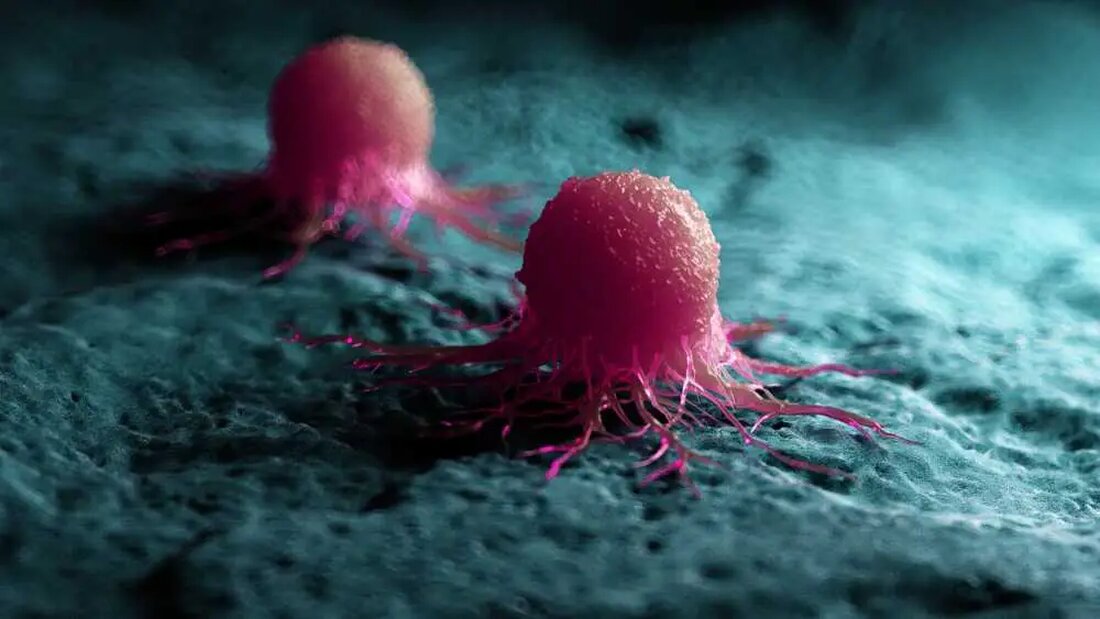The role of collagen in the dormancy of cancer cells: A new frontier in cancer treatment
Cancer is a leading cause of death worldwide, with 19.3 million new cases and 10 million deaths in 2020 alone (International Agency for Research on Cancer, 2020). As the global population ages and the prevalence of risk factors such as smoking, obesity and physical inactivity increases, the burden of cancer is expected to continue to rise. Therefore, there is an urgent need for innovative and effective treatments to combat this disease. In recent years, the relationship between collagen, a protein found in the human body, and cancer has gained attention in the scientific community. Researchers have discovered that certain types of collagen can keep cancer cells dormant and prevent...

The role of collagen in the dormancy of cancer cells: A new frontier in cancer treatment
Cancer is a leading cause of death worldwide, with 19.3 million new cases and 10 million deaths in 2020 alone (International Agency for Research on Cancer, 2020). As the global population ages and the prevalence of risk factors such as smoking, obesity and physical inactivity increases, the burden of cancer is expected to continue to rise. Therefore, there is an urgent need for innovative and effective treatments to combat this disease.
In recent years, the relationship between collagen, a protein found in the human body, and cancer has gained attention in the scientific community. Researchers have discovered that certain types of collagen can keep cancer cells dormant and prevent them from becoming malignant. This article will look at the science behind this claim, explore possible means of obtaining collagen, and provide a recipe for incorporating this protein into your diet.
Cancer Cells and Collagen: The Science Behind the Claim
Cancer cells can exist in a dormant state without causing damage or spreading to other parts of the body. However, once these cells become active, they can grow and divide uncontrollably, leading to the formation of tumors and the spread of cancer throughout the body.
A study conducted by researchers at the Duke Cancer Institute found that cancer cells can remain dormant by secreting a specific type of collagen known as type XVIII collagen (Barkan et al., 2018). This type of collagen forms a protective barrier around the cancer cells, preventing them from interacting with their environment and becoming malignant.
The study also found that cancer cells are more likely to become active and malignant when collagen levels drop. This finding suggests that maintaining sufficient levels of type XVIII collagen around cancer cells may be crucial to keeping them inactive.
Adding collagen to the environment of cancer cells
The Duke Cancer Institute study has opened up new possibilities in cancer treatment, as adding type XVIII collagen to the environment of cancer cells could potentially force them to remain dormant. This approach could be used in combination with existing treatments such as chemotherapy and radiation therapy to improve their effectiveness and reduce the risk of cancer recurrence.
There are several ways to potentially increase collagen levels in the body, including:
- Ernährung: Der Verzehr von kollagenreichen Lebensmitteln wie Knochenbrühe, Fisch und Gelatine kann helfen, die Kollagenproduktion im Körper anzukurbeln. Darüber hinaus können Lebensmittel, die reich an Vitamin C sind, wie Zitrusfrüchte, Beeren und Blattgemüse, die Kollagensynthese unterstützen.
- Nahrungsergänzungsmittel: Kollagenergänzungen, die in Form von Pulvern, Kapseln und Tabletten erhältlich sind, können eingenommen werden, um den Kollagenspiegel im Körper zu erhöhen. Es ist jedoch wichtig, vor der Verwendung dieser Nahrungsergänzungsmittel einen Arzt zu konsultieren, da ihre Wirksamkeit und Sicherheit nicht gründlich untersucht wurden.
- Gentherapie: Wissenschaftler erforschen auch das Potenzial der Gentherapie, um die Produktion von Typ XVIII-Kollagen in Krebszellen zu steigern. Durch das Einfügen eines für die Kollagenproduktion verantwortlichen Gens in die Zellen hoffen die Forscher, Krebszellen dazu zu zwingen, inaktiv zu bleiben und das Fortschreiten der Krankheit zu verhindern.
A recipe to boost collagen
One way to incorporate collagen into your diet is with a delicious, collagen-rich smoothie. This recipe is packed with nutrients that support collagen production and overall health:
Ingredients for the collagen-boosting smoothie:
- 1 Tasse gefrorene gemischte Beeren (reich an Vitamin C)
- 1 Messlöffel Kollagenpulver (vorzugsweise von einer renommierten Marke)
- 1 Tasse Spinat oder Grünkohl (reich an Vitamin C und Antioxidantien)
- 1 Esslöffel Chiasamen (reich an Omega-3-Fettsäuren)
- 1 Esslöffel Mandelbutter (reich an gesunden Fetten)
- 1 Tasse ungesüßte Mandelmilch oder Kokosmilch
Instructions:
- Kombinieren Sie alle Zutaten in einem Mixer.
- Mit hoher Geschwindigkeit mixen, bis es glatt und cremig ist. Wenn der Smoothie zu dick ist, fügen Sie mehr Mandelmilch oder Kokosmilch hinzu, bis die gewünschte Konsistenz erreicht ist.
- Den Smoothie in ein Glas füllen und sofort genießen. Dieser kollagenverstärkende Smoothie kann als nahrhaftes Frühstück oder Snack verzehrt werden.
The discovery of the role of type XVIII collagen in maintaining the quiescent state of cancer cells has opened new avenues in cancer treatment and research. Maintaining adequate levels of collagen around cancer cells may prevent these cells from becoming malignant and spreading throughout the body.
While further research is needed to determine the most effective means of introducing collagen into the cancer cell environment, incorporating collagen-rich foods and supplements into your diet could potentially support overall health and help prevent the onset or progression of various diseases, including cancer.
It is important to note that no single food or supplement can cure or prevent cancer, and it is important to eat a balanced diet, maintain a healthy lifestyle, and consult with medical professionals to ensure the best
Sources:
- (Link entfernt)
- (Link entfernt)

 Suche
Suche
 Mein Konto
Mein Konto
